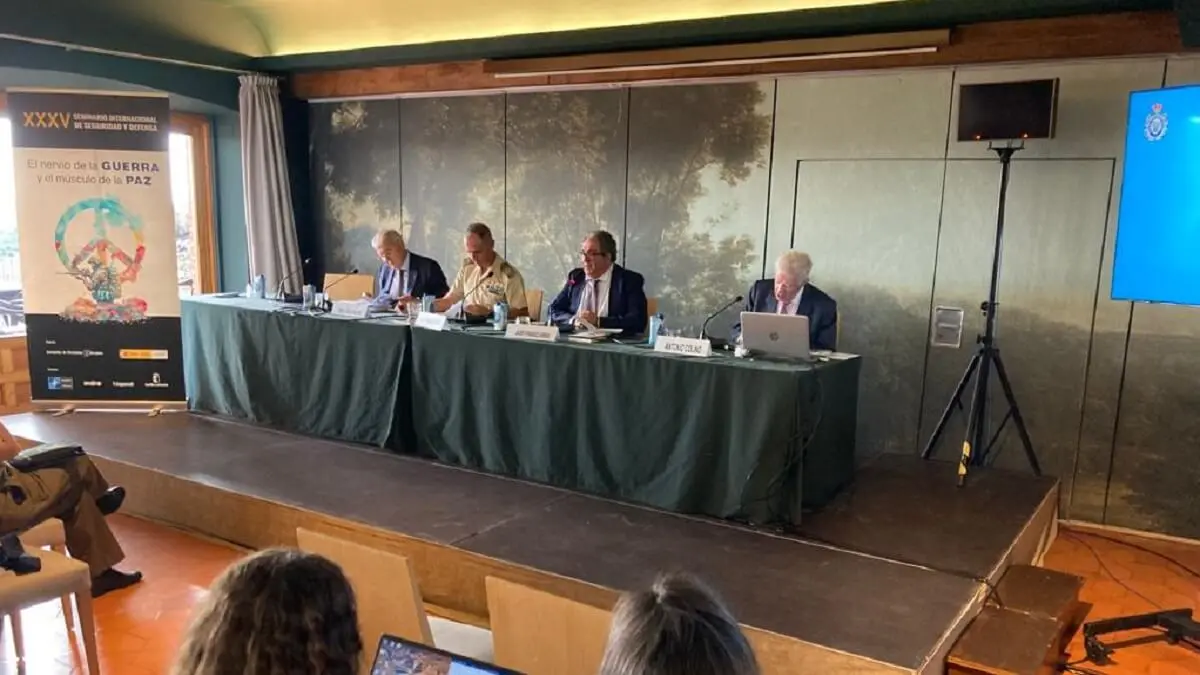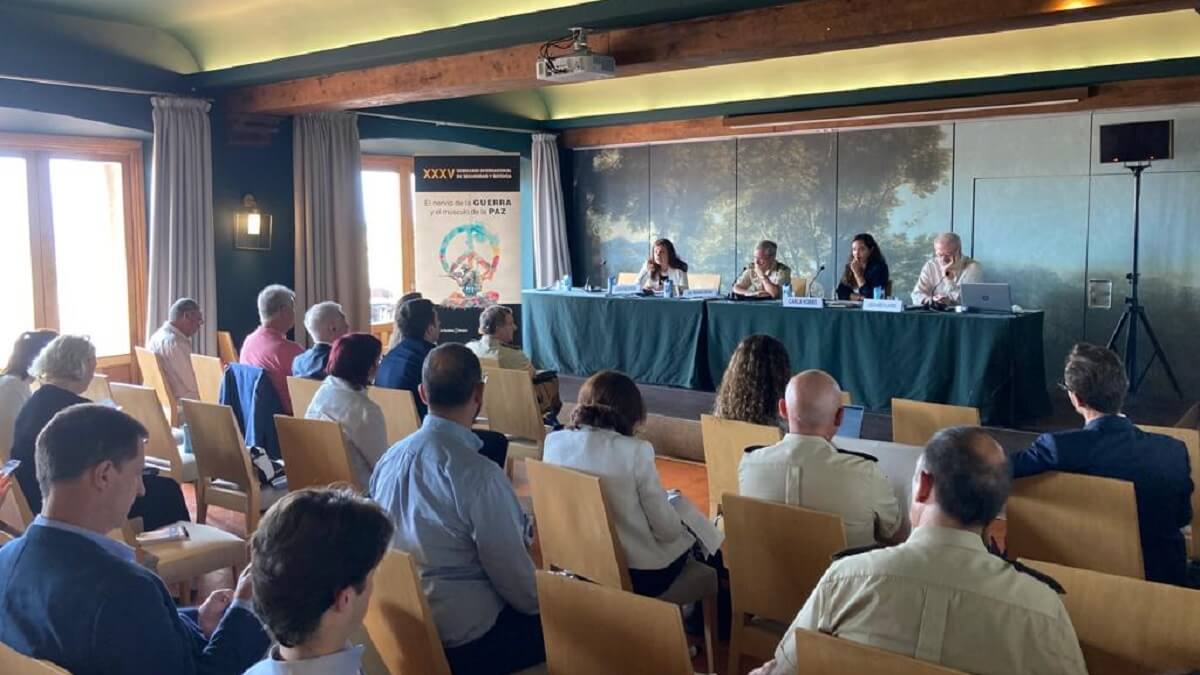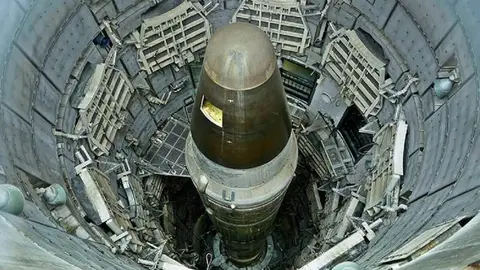Which Russia and which Ukraine will we want after the war?

Neither a fragmented and chaotic Russia nor a defeated Ukraine absorbed by Russian imperialism. At least for Europeans, integrated into both the European Union and NATO, this is the scenario they consider the least bad for the post-war period. A time that is not yet known when it will come, given the level of uncertainty surrounding both the resolution of the direct struggle between the two countries and the interests projected onto the conflict by a multitude of actors who want to reposition themselves in the new world order that is already being forged.
In general terms, this is the main conclusion that emerged from the intense debates at the XXXV International Seminar on Security and Defence which, once again organised by the Association of European Journalists, brought together a hundred European and American military and civilian experts in Toledo to dissect the nerve of war and explain how the muscle of peace can act.
There is no doubt in the diagnosis: the war in Ukraine is changing the world, starting with the shock it has given to the new generations of the Old Continent, who had become convinced that it was impossible for there to be a new conflagration on European soil, and that wars were those conflicts that take place in distant latitudes, and to which attention is only paid when their tragic consequences in the form of floods of refugees arrive with their hardships on their shoulders at the threshold of the territory of the Union.

The reality of the terror inflicted by a neighbour who flouts the rules has given way to the disquisitions of the drawing room. That is why Finland and Sweden have exchanged their supposedly unchanging and exquisite neutrality for banging on NATO's door, seeking protection for all their members. Likewise, Eastern European countries, with Poland and the Baltics in the lead, are reminding the rest of their partners of the dismissiveness with which they greeted their repeated warnings about Russia's imperialist drive. They display moral superiority and have turned France and Germany around, and are now demanding that they be taken more into account in the design of the European architecture.
From there, there is unanimity in considering that there is an aggressor and an aggressed, and that a just negotiated peace cannot be achieved if the aggressor and the aggressed are omitted. This re-emergence of Russian imperialism, a logical consequence of exacerbated nationalism, has accelerated the closing of ranks in the EU and NATO, and of course the nationalism of the invaded Ukraine, which has become the spearhead of the defence of the values that the West claims to uphold and defend.
The war is also changing the face of the armed forces in all countries. The increasingly sophisticated war materiel being provided to the Ukrainians is coming out of the warehouses of the national armies, which in turn are asking the United States not to leave them helpless and to replace them with new-generation weapons. Washington is undoubtedly one of the winners in this war, and has made the Europeans realise that they lack a collective defence industry. Designed for peacetime, bureaucracy trumps urgency in EU military industrial projects.

If Europe wants to be a major player in the post-war period, it will have to speed up its industrial plans, in which nudging is the order of the day; witness the Spanish Defence Minister's walkout from a NATO meeting with some thirty companies, among which no Spanish company had been invited. This treatment is all the more unfair given that "Spain will have the most advanced satellites in Europe in two years", according to Miguel Ángel Panduro, CEO of Hispasat.
Spain's concern, which should also be that of the entire EU, also lies in what might happen in the Sahel, where it is foreseeable that the pressure of the jihadist guerrillas, aided by the Kremlin's mercenaries, will turn the region's states into failures, with the consequent threats and pressures on the Maghreb. Ukraine will have to be resolved first and then the southern flank will have to be addressed. Spain demands reciprocal assistance from its partners in this regard.
It is therefore not in Spain's interest that the outcome of the conflict should result in a fragmented and chaotic Russia. With a defeated and exhausted country, but with institutions and leaders that embody them, it is possible to negotiate. Not so with territories in chaos, where no one knows who is in charge and it is impossible to establish any useful agreement. Russia will have to settle its differences internally, perhaps its greatest crisis, perhaps by overthrowing Putin, the initiator of the war, who has now become a minor ally of China, also a big winner in this conflict.
While Ukraine is being devastated, China has literally bought up most of the mines in Latin America and Africa that produce the rare materials that are essential for everything from computers to mobile phones. If this continues, by 2050 they will be the absolute masters of the market.
Ukraine, through the mouth of its president Volodimir Zelenski, wants to regain everything that Russia has taken from it since 2014. It believes it is in a position to do so and is not giving up on inflicting a severe military defeat on Russia. It will not be easy. Crimea may be non-negotiable for Moscow, and if it loses it, it may even become a pretext for firing its tactical nuclear weapons. Of course, NATO will not open the door to Ukraine's entry - that would be NATO's declaration of war on Russia, as Article 5 of the Alliance would then automatically apply. On the other hand, it could be facilitated by shortening the timeframe for EU membership, provided it complies with the requirements of the acquis communautaire. Among the most urgent of these is the eradication of corruption. Brussels will have to keep a close eye on the handling of the money that is already flowing, but which will flow even more when the country's reconstruction projects can get underway. A manna that may initially be in the region of 300 billion euros. And let's not forget that the hero Zelenski came to power because Ukrainians were very, very fed up with the rampant corruption that plagued the entire country.


